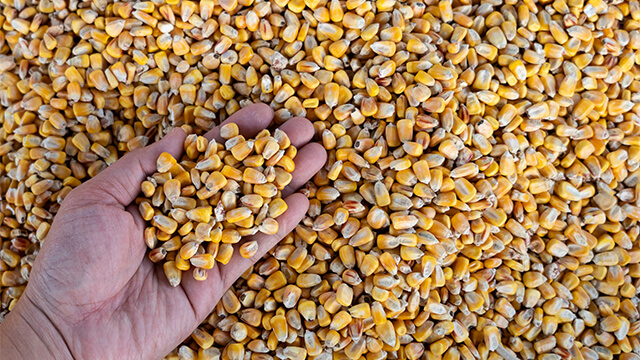Maissipohjainen jalostus
The Alfa Laval corn wet milling process is the industry standard, implemented in more than 170 plants around the world. This state-of-the-art process is characterized by high yield, low water consumption and high reliability. Alfa Laval components and systems are specifically designed for processing corn into germ, fibre, starch, gluten and concentrated steep liquor and are therefore able to provide high performance, maximum uptime and low operating costs.
Degritting
The Alfa Laval de-gritting system protects the disk stacks and nozzles in the downstream Merco centrifuges by separating out sand and clay. High separation efficiency minimizes the risk of problems in the high-speed separators. The system has no moving parts, ensuring high reliability. Quick and easy replacement of individual cyclones helps keep maintenance costs low, and the compact system only requires a minimum of floor space.
Primary separation
The Alfa Laval Merco separator is the industry’s benchmark for separating starch from gluten. It was specifically developed for corn starch production and provides an ideal combination of high flow capacity and low energy consumption. The sturdy design ensures unrivalled service life, reliable uptime and low maintenance costs. We have installed more than 1,800 Merco units since the 1970s, and most of them are still in use.
Gluten thickening
Using a Merco separator as a gluten thickener enables you to operate at concentrations as high as 150 g/litre – the highest for any separator on the market. This high concentration leads to low energy consumption in the dewatering stage when this is based on rotary vacuum filters.
Mill stream thickener (MST) and clarification
The versatility of the Merco separator makes it ideal for concentrating the mill stream before the starch and gluten are separated. The Merco mill stream thickener provides a steady output regardless of the feed conditions, which improves primary separation performance.
The Merco separator can also be used as a clarifier to recover starch and protein coming from the hydrocyclone starch washing overflow.


Gluten dewatering
Alfa Laval offers a choice of two technologies for gluten dewatering – rotary vacuum filters (RVF) and decanter centrifuges. Rotary vacuum filters are the traditional choice for gluten dewatering. Decanter centrifuges provide highly efficient dewatering and make it possible to either free up floor space or increase dewatering output.
Corn steep liquor (CSL) evaporation
Alfa Laval CSL evaporation systems are based on Alfa Flash technology, making them both compact and energy-efficient. The combination of high flow velocity and high turbulence minimizes fouling. Steam consumption can be cut by 50% in existing evaporation systems by retrofitting them with an extra effect, based on Alfa Laval technology. This type of system often makes it possible to recoup your investment in less than a year.
Starch washing
The ideal combination of high performance and reliable operation characterize Alfa Laval multi-stage hydrocyclone-based starch washing systems. The high-quality materials and low tolerances used in our multicyclones and hydrocyclones (cyclonettes) lead to efficient washing and very low levels of impurities in the end product.
Heating and cooling process streams
Alfa Laval supplies a wide range of gasketed and welded plate heat exchangers with high thermal efficiency, compact design, high uptime and low maintenance costs. You can easily expand the capacity of Alfa Laval gasketed heat exchangers by adding more plates at a later stage. Alfa Laval WideGap plate heat exchangers have been specially developed for handling fibrous media, and therefore reduce the risk of blockage.
Case stories
Documents



